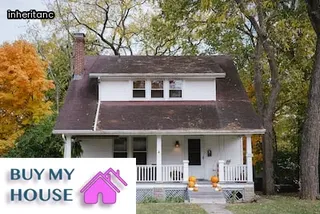Navigating the Probate Process for Real Estate in Florida can be a daunting task, especially if you’re unfamiliar with the laws governing real estate transactions in the state. Whether you’re selling your home to settle an estate or inheriting a property that needs to be sold, understanding the probate process is key.
Before beginning this journey, it is important to understand what probate is and how it affects real estate transactions in Florida. Probate is a complex legal process that occurs when someone dies and their assets must be settled before being distributed among their heirs or beneficiaries.
In the case of real estate, all parties involved must adhere to certain laws and regulations when it comes to selling a property through probate. This includes understanding how to obtain Letters of Administration from the court, properly filing title documents and obtaining proper financing if necessary.
Knowing these steps can help make the entire process smoother and less stressful for everyone involved.

When selling a home in the state of Florida during probate, it is important to understand the legalities of appointing an executor or administrator. Probate proceedings are initiated by filing with the court, and the court will then appoint either an administrator or an executor to manage the estate.
An executor is usually a family member appointed by the deceased’s last will and testament, while an administrator is appointed by the court if there is no will. Depending on the circumstances of each case, either type of representative can be appointed, but it is important to understand that they have separate roles and responsibilities when it comes to managing and distributing assets from the estate.
The probate process can be time consuming and complicated without expert guidance, so understanding who can act as an executor or administrator in your situation is essential for successfully selling your home in Florida probate.
Selling your home during probate in Florida can be a challenging process, but with the right preparation you can ensure that the sale of your home proceeds smoothly. Before you start the process of selling your home, it’s important to ensure that the property is in good condition.
Making minor repairs and improvements, such as painting or replacing fixtures, can make your property more attractive to potential buyers. In addition, decluttering and staging your home will help make it more appealing to buyers.
You should also get a professional appraisal of your home in order to determine its fair market value. Finally, it’s important to price your home correctly – setting an unrealistic price could lead to wasted time and effort if you are unable to find a buyer at that rate.
With proper preparation and guidance from a qualified real estate agent, you can successfully sell your home during probate in Florida.

When selling a home in Florida probate, it is important to find an experienced and knowledgeable real estate agent certified in probate. Top-rated agents should have a good understanding of the state's probate laws, as well as experience working with executors, administrators, trustees and other individuals involved in the process.
It is also beneficial to work with an agent who knows how to market your home effectively, and can offer strategies to maximize its value. Some resources to explore include searching online for local realtors who specialize in probate sales or asking family and friends for referrals.
Additionally, many real estate companies offer free consultations that can help you make informed decisions when selecting a qualified professional. With the right guidance, you can navigate the process of selling your home in Florida probate successfully and confidently.
When selling a home in Florida probate, it is important to understand the process before you begin. You must first determine if you are eligible to file for probate.
In order to do this, you need to contact your local probate court and provide them with the deceased’s will. The court will review the document and inform you of whether or not probate is necessary.
If it is, then you can move forward with the proceedings. It is also important to understand that there are certain state and federal laws that apply when filing for probate in Florida, so make sure to research these thoroughly before beginning any process.
Additionally, consider seeking legal assistance from an attorney who specializes in estate planning and probate law. Finally, it is essential to be aware of any deadlines or time limits set by the court when initiating a probate case in Florida.
With an understanding of all relevant regulations and procedures, you can confidently dive into the journey of selling a home through probate in Florida.

When selling a probate property in Florida, the listing strategy is an important part of the process. One of the most common strategies for listing a probate property in Florida is to find a local real estate agent who has experience with probate sales and knows how to market the property properly.
It is also important to research similar properties that have recently sold in the area, both those that were sold at auction and those that went through traditional sales. This will allow you to get an idea of the expected sale price for your home.
Additionally, it’s essential to be aware of any zoning or deed restrictions associated with the property, as well as any taxes or liens that may need to be paid before closing. Finally, it’s important to make sure you are familiar with all applicable state laws regarding probate sales so that you can properly prepare documents such as affidavits and transfer forms.
With these strategies in place, you’ll be able to successfully list your home and move forward with a successful sale.
When it comes to closing the deal on selling a home in Florida probate, contract negotiations play an important role. Buyers and sellers may need to collaborate on certain details such as the amount of the deposit, inspection requirements, contract contingencies, other terms of sale and more.
It is essential that all parties involved are aware of their rights and responsibilities under Florida law so they can make informed decisions throughout the process. In addition, a qualified real estate professional can provide invaluable guidance when negotiating the final details of a contract.
Once both parties are satisfied with all agreed upon terms, the purchase agreement should be signed and delivered to the escrow agent or title company for review and processing. Finally, after all documents have been properly executed and approved by both parties, settlement will be completed and ownership transferred to the buyer.

When selling a probatable estate, it is important to understand the process of overbidding in order to navigate fluctuations in price. Overbidding is when multiple buyers submit offers on a single property, and the seller then chooses the highest offer.
This can be beneficial for sellers, as it encourages competition and potentially increases their sale price. To ensure a successful sale, sellers should familiarize themselves with the rules and regulations of overbidding in their local area.
They should also consider hiring an experienced real estate agent who is knowledgeable about the local market and can help them understand how to best manage any bidding wars that arise. Additionally, sellers should research recent sales of similar properties in order to determine a fair market value for their home.
With this knowledge, they can make sure that any bids received are reasonable and appropriate for the current market conditions. By taking these steps, sellers can maximize their chances of achieving a profitable sale price when selling their home in Florida probate.
Selling a home in the state of Florida when it is going through probate can be a challenging process. It is essential to understand the complexities of the probate system and the best strategies for getting your property sold quickly with approval from the court.
This comprehensive guide will provide you with all the steps required to market, negotiate and close on a sale within the probate process so that you can move forward with confidence. You'll learn what types of documentation are necessary, how to deal with liens or other claims, how to navigate any legal issues that may arise, as well as tips for staging and marketing your home in order to get top dollar.
Additionally, you'll discover ways to work with real estate agents, lawyers and advisors who are familiar with Florida's laws regarding probate sales. With this helpful information, you'll be able to make an informed decision about selling your Floridian home while ensuring that all requirements are met for a successful closing.

Selling a home during probate can be a tricky process, so it's important to know when the right time to list your Florida property is. The probate process will vary depending on the type of estate and the complexity of the case, but generally speaking, the court must approve any proposed sales before they can go through.
There are a few things you should consider when determining when to list your property in order to ensure that everything goes smoothly. First, you'll need to understand what probate requirements entail for your specific situation.
This includes understanding all applicable laws and regulations, as well as any deadlines or restrictions established by the court. You'll also want to research market conditions in your area and evaluate how long similar homes take to sell.
Additionally, make sure you have all necessary documents in order before listing your home with a real estate agent or on a website like Zillow or Trulia. Finally, hiring an experienced attorney who specializes in Florida probate law can help protect your rights and ensure that all necessary paperwork and approvals are obtained in a timely manner.
By taking these steps, you can be sure that when you list your Florida home during probate, it will be done properly with minimal hassle and stress.
Jacksonville, Florida is a prime spot for selling real estate due to its booming market and attractive coastal location. To make sure you get the best possible price on your home in probate, it's essential to identify the most opportune time to list your property.
The housing market in Jacksonville follows seasonal trends and certain months may be more advantageous than others when it comes to listing. In general, springtime is the busiest season for real estate transactions but there are still ways to capitalize on the market during other times of the year.
Understanding how factors like inventory levels, buyer competition, and interest rates can impact sale prices will give you a better understanding of when you should list. Additionally, consulting with an experienced local agent can help you determine the ideal time frame for getting your house on the market as they will have a better grasp of current conditions in the area.
With an informed approach and an eye on timing, you'll be well positioned to get top dollar for your property in probate.

Moving long-distance can be a daunting prospect, but with the right planning and preparation it doesn't have to be. Selling your home in Florida probate requires a bit of extra legwork and paperwork, so starting the process early is key.
To make sure you arrive in Jacksonville smoothly, it's important to research moving companies ahead of time and compare rates. Make sure to book your movers in advance and get accurate quotes that include all fees and taxes.
If you can manage it, hiring professional packers can save you a lot of stress during the move. Collecting all necessary documents related to the sale of your home will also help streamline the process.
Knowing what you need for the closing will allow you to avoid any delays or complications down the road. Additionally, don't forget to transfer your driver's license and any other important personal documents or information into your new state before you leave.
With these tips and strategies in mind, selling your home in Florida probate doesn't have to be overwhelming – just plan ahead for a smooth transition into Jacksonville.
When selling a home in Florida probate, it is important to understand the tax implications associated with real estate transactions. In order to ensure that all applicable taxes are paid, the executor of the estate should investigate and be aware of any applicable federal, state, or local taxes that may be due.
Depending on the size of the estate, capital gains taxes may need to be paid when a property is sold. Additionally, inheritance and transfer taxes may also come into play if certain requirements are met.
Furthermore, when determining the value of an estate’s assets for taxation purposes, it is important to consider whether those assets will appreciate or depreciate over time. Knowing these tax implications can help an executor make informed decisions during a sale and avoid any potential legal issues down the line.

If you're selling your home in Florida, understanding the definition of probate listing in Floridian law is essential. Probate is a legal process that is used to settle a deceased person's estate.
In cases where a home was owned by a deceased individual, the court may order it to be sold as part of the probate process. Probate listings can be divided into two categories: formal and informal.
Formal probates are those that are overseen by a court, while informal probates are generally handled outside of court. During either type of probate listing, the seller must submit an inventory of all assets and liabilities associated with the property and must include any liens or mortgages on the property.
The seller will also need to provide certain documents and information about their identity in order to proceed with the sale. The state of Florida has specific laws regarding how these sales should be conducted, so it's important for sellers to understand what those requirements are before proceeding with a sale.
Selling a home in Florida probate can be a complex process and requires a variety of different documents and paperwork. Depending on the type of probate being conducted, the executor of the estate or an attorney may need to submit certain forms that are specific to the estate.
It is important to understand the types of documentation required when selling an estate in Florida so that all parties involved can ensure everything is done correctly. Some of these documents include death certificates, letters of administration, title searches, affidavits, inventories, appraisals and releases from creditors.
The executor should also obtain tax clearance from federal and state authorities and have any necessary lien releases for outstanding debts associated with the estate. Additionally, certain court orders must be secured if necessary.
All these documents will help facilitate a smooth transfer of ownership when selling an estate in Florida.

When selling a home in probate, it is essential to understand the rights and responsibilities of all parties involved. Beneficiaries should be aware of the legal process, including the right to receive notice of any court proceedings related to the estate and the right to object to any proposed sales or other transactions.
In addition, they must understand their role in approving or denying transactions, as well as their responsibility for ensuring that all debts and taxes are paid before assets are distributed. Furthermore, those receiving assets from a probate sale must make sure that the title is transferred correctly.
All of these steps should be fully understood before accepting an offer on a property being sold through probate.
It is important to consider the value of assets when selling a home in Florida probate. Knowing the market value of your property will help you make an informed decision when listing it as part of a probate sale.
The estimated market value of the property is determined by taking into account comparable sales in the area, current real estate conditions, and any special features that may be present on the property. Additionally, if there are any liens or encumbrances on the property from prior owners, those should also be taken into consideration when assessing its worth.
With this information in hand, you can estimate a reasonable price for your home and get the most out of your probate sale in Florida.

When it comes to selling real estate through probate cases in Florida, there are a number of potential liabilities that must be uncovered and accounted for. These liabilities can include taxes, liens, claims, debts and mortgages associated with the property being sold.
It is important to recognize these potential issues early in the process as they may significantly impact the timeline, cost and ultimate sale of the property. Additionally, when working with an executor or personal representative on a probate case, it is essential to understand their obligations to ensure they are compliant with state laws.
Finally, when working with an attorney or other professional who is assisting you through the probate process, make sure that their fees are outlined clearly and agreed upon before any paperwork is signed. Taking these simple steps can help ensure that your experience selling real estate through probate in Florida is as smooth as possible.
When settling contested claims during the probate process, it is important to evaluate the strategies available to you. The Florida probate court will make a decision on which strategy is best for each particular situation.
If there are questions or disputes over debts, assets, and other matters that must be resolved prior to closing the estate, it is important to carefully consider all options before proceeding. For example, if a decedent's will leaves out an heir or fails to provide instructions for distributing assets, this could lead to a dispute that could delay the sale of the home.
In such cases, mediation may be necessary in order to reach an agreement between all parties involved. Additionally, if a creditor has placed a lien against the estate property, it may be possible to negotiate with them in order to reduce or eliminate their claim against the estate.
By evaluating these strategies and any others that may apply in your situation, you can ensure that any potential issues are addressed and settled promptly so that you can proceed with selling your home in Florida probate without delays.

When selling a home in Florida probate, it is important to understand the costs that may be involved. From filing fees to administrative expenses, there are many potential financial obligations a seller must take into consideration.
One of the most significant costs is probate court fees, which can range from several hundred dollars to well over five thousand dollars depending on the estate's value. In addition to court-related fees, sellers must also pay for appraisal services and legal assistance if necessary.
Realtor commissions and closing costs are also factored into the final sale price. Understanding all these costs upfront will help ensure the seller has a complete picture of what they are responsible for with respect to their Floridian probate sale.
A probate sale in Florida is the process of selling a property that has become part of an estate due to the death of the owner. The process begins with filing a petition with the court to administer the estate, which includes determining whether or not a will exists and appointing a personal representative to manage the estate's assets.
The personal representative must then determine if any liens exist on the property and arrange for payment of outstanding debts and taxes. After all debts have been paid, the personal representative can begin marketing the property for sale through listing services, open houses, and other methods.
Once a buyer is found, both parties must agree to terms and conditions in a purchase agreement before finalizing the transaction. A real estate attorney should be consulted throughout this process to ensure that all legal requirements are met.

Yes, you can sell a property in probate in Florida. In order to do so, however, there are certain steps that must be taken to ensure the process goes as smoothly as possible.
This comprehensive guide will help explain the basics of selling your home in Florida probate and provide key tips on how best to go about it. The first step is determining whether or not you need to obtain a court order, which is usually required if the decedent died intestate (without leaving a valid will).
Additionally, you'll want to familiarize yourself with Florida laws regarding probate property sales so you understand any potential restrictions or implications. After understanding the legal requirements and filing any needed paperwork, it's important to hire an experienced real estate agent with knowledge of local probate laws and regulations.
A qualified agent can assist with valuing the property and helping set an appropriate list price. They'll also know what documents may be needed from potential buyers and which forms need to be completed prior to closing.
Lastly, remember that other factors such as timing and market conditions will impact the success of a probate sale—so it's essential to choose your timing carefully. With this comprehensive guide detailing the steps for selling your home in Florida probate, you can rest assured that you have all the information necessary for a successful transaction.
When a house is in probate in Florida, it means that the deceased homeowner's estate is being processed by the court. Probate is the legal process of collecting and distributing a deceased individual's assets, including real estate.
In order to sell a home in Florida when it is in probate, certain steps must be followed. If these steps are not taken correctly, the sale may be delayed or even invalidated.
This comprehensive guide will cover all aspects of selling a home in Florida probate, from understanding the basics of probate law to navigating the complexities of selling a property during this process.
If you are considering selling your home in Florida Probate, it is important to know how to determine whether a property is in probate. In Florida, the probate process begins when the owner of a property dies and the process of transferring ownership occurs through court supervision.
The first step in finding out if a property is in probate is to search online for public records related to the deceased owner. You can also contact the Clerk of Court in the county where the deceased lived and request information on any estate proceedings conducted by that court.
Additionally, you can search deed records at Florida county recording offices for references to deeds of distribution or other documents that may indicate a property is in probate. Knowing whether or not a property is in probate before attempting to sell it will make the process easier for everyone involved.
A: In Florida, a probate listing refers to the process of selling a home that has been left as part of an estate to settle debts or distribute assets. It typically requires court supervision and involves the executor of the estate marketing and selling the home.